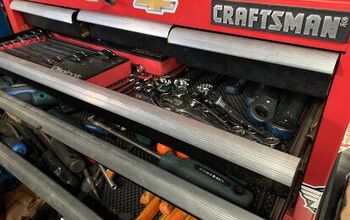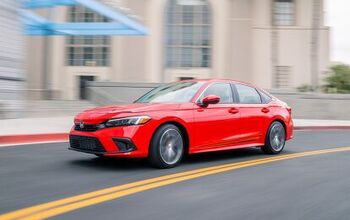German Automakers Look to South America for Keystone Lithium Supply

With Europe increasingly fixated on regulating vehicular emissions, German automakers are throwing themselves into electrification like ’90s moms did with Beanie Babies. As with those moms, the investment has yet to pay off. Still, that hasn’t encouraged anyone to change course. Every player understood from the outset that transitioning to EVs was bound to be costly and, with increasingly stringent regulations proposed every month, there aren’t many alternatives.
Volkswagen placed its very existence on electrification after Dieselgate, quickly running into problems with battery suppliers. And while VW claims it’s solved the issue for the next few years, it isn’t out of the woods yet. VW and Daimler have reportedly commissioned a study into sustainable lithium mining in Chile, but it’s already receiving pushback from environmental groups concerned about the delicate nature of the region’s Atacama salt flat — where the metal is found in abundance.
Unlike other locations, where lithium is mined from rock, Atacama miners extract the element from brine pools. Chilean locals and activist groups are concerned that the ultra-dry desert’s water table could be damaged, with the risk increasing as EVs become commonplace. More mining is guaranteed to disrupt the area’s rather fragile and unique ecosystem, which is heavily dependent upon underground springs to support life.
Reuters reports that Volkswagen visited Atacama in January, foreshadowing new efforts to secure the foundation of its battery supply chain. Daimler may have popped in to check out the scene as well, but declined to comment on the matter.
From Reuters:
Lobbying records show a team from German development agency GIZ and the public-private Fundacion Chile met with Cristóbal De La Maza, chief of top Chilean environmental regulator SMA, early this year to formally present plans for the “feasibility study.”
“This project is driven by the Volkswagen and Daimler companies,” the filings read. “The growing importance of batteries has made the sustainability of lithium a key priority for these companies.”
While electrification has its merits, there are still legitimate questions that must be answered about battery waste and mining practices. A lot of the materials necessary for battery production come from a handful of areas, obtained by low-wage employees ( sometimes children, in the case of cobalt) in regions enacting few environmental or occupational safeguards. But what are automakers to do when governments mandate zero emissions, with EVs looking like the only answer?
While the irony of environmentalists standing in the way of electric vehicle production isn’t lost on us, this just seems sad. Unless electric vehicles die on the vine, there’ll soon be a colossal surge in battery related mining. There has to be. The increased production of mobile devices has already mashed down the accelerator. EVs will deliver a giant shot of nitrous, bringing new risks to the table in the quest for automotive superiority. How is any of this going to work if one green solution just sweeps new environmental hazards under someone else’s rug?
[Image: Ksenia Ragozina/Shutterstock]

A staunch consumer advocate tracking industry trends and regulation. Before joining TTAC, Matt spent a decade working for marketing and research firms based in NYC. Clients included several of the world’s largest automakers, global tire brands, and aftermarket part suppliers. Dissatisfied with the corporate world and resentful of having to wear suits everyday, he pivoted to writing about cars. Since then, that man has become an ardent supporter of the right-to-repair movement, been interviewed on the auto industry by national radio broadcasts, driven more rental cars than anyone ever should, participated in amateur rallying events, and received the requisite minimum training as sanctioned by the SCCA. Handy with a wrench, Matt grew up surrounded by Detroit auto workers and managed to get a pizza delivery job before he was legally eligible. He later found himself driving box trucks through Manhattan, guaranteeing future sympathy for actual truckers. He continues to conduct research pertaining to the automotive sector as an independent contractor and has since moved back to his native Michigan, closer to where the cars are born. A contrarian, Matt claims to prefer understeer — stating that front and all-wheel drive vehicles cater best to his driving style.
More by Matt Posky
Latest Car Reviews
Read moreLatest Product Reviews
Read moreRecent Comments
- Analoggrotto Hyundai is the greatest automotive innovator of the modern era, you can take my word for it.
- MrIcky My maintenance costs are pretty high because I enjoy doing questionable things (when it is safe to do so of course). Tires and frequent oil changes seem a small price to pay.
- MaintenanceCosts Dammit, my Highlander's two years too old.
- Analoggrotto so what
- Shipwright I wonder where Speedmaster is based. Oh Looky! it's China! who would have thought.


































Comments
Join the conversation
"Electric cars are great with their immediate torque, but they lack the appeal of the sound of a V-8 engine in a class automobile." Or with a capable digital signal processor whose signal is amplified by a powerful class-D amplifier, driving some rare-earth loudspeakers, the sound AND vibration of such an engine, any engine, could be re-created. Big block American V8? Option 1. Ferrari 12? Option 2. Classic BMW inline 6? Got it, option 3. Of course, I am only joking.......But someone may even start a Kickstarter program to develop such a product.
Spent some time on the Chilean altiplano in 2013. Even back then, there were lots of Chinese roaming about. There is a channel on local TV with a Chinese news anchor speaking Spanish. Weird stuff in a gorgeous land, awesome landscapes everywhere you look. I think the Krauts may be a day late and a Euro short in sewing up deals for Lithium.